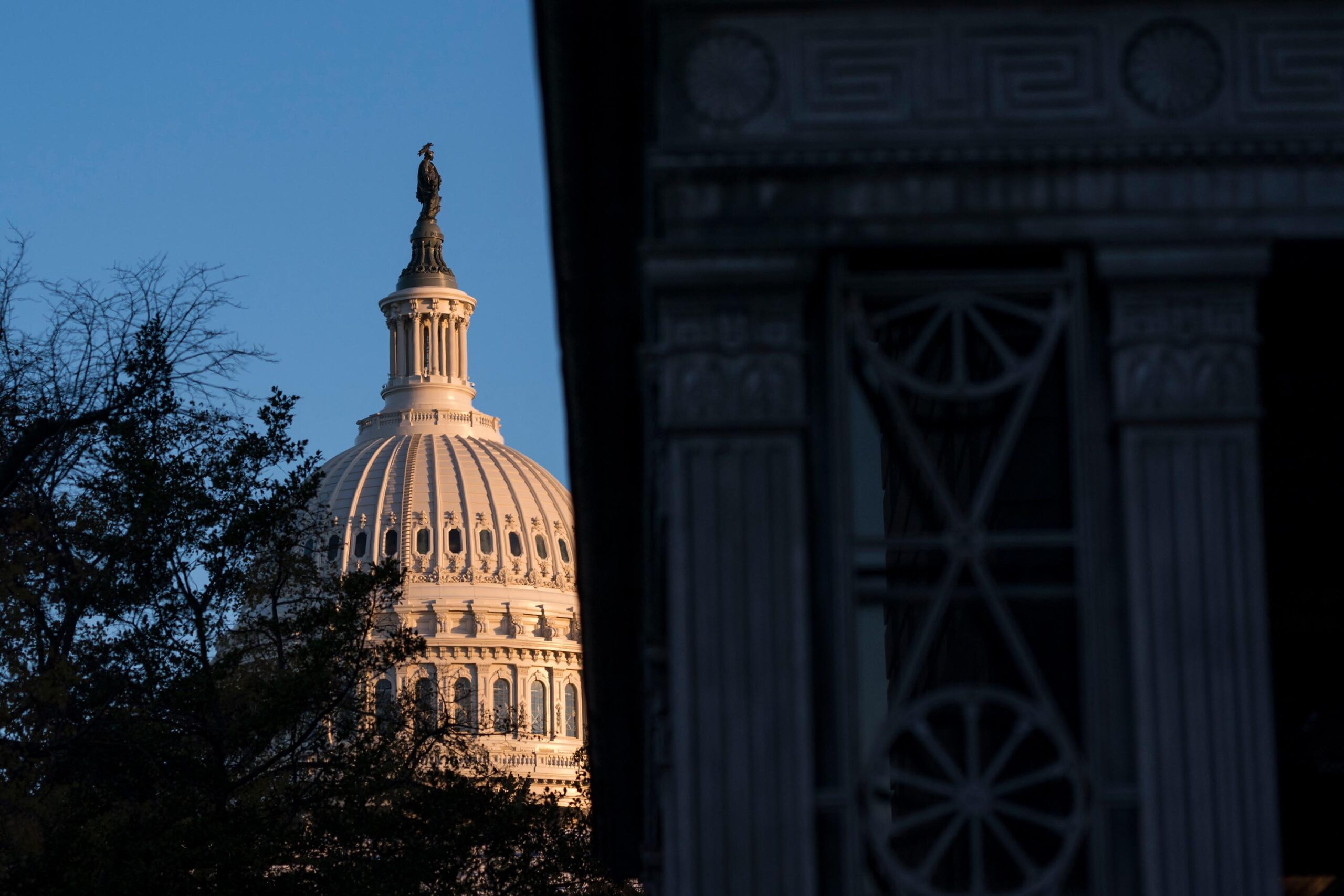More than a dozen Democrats on the House Armed Services Committee joined with Republicans to easily approve a measure boosting the Pentagon’s budget by $24 billion as part of a debate for a sweeping defense bill that authorizes spending levels and outlines priorities for the US military.
The amendment from Rep. Mike Rogers of Alabama, the panel’s top Republican, was added to the House’s National Defense Authorization Act during the committee’s debate Wednesday in a 42-17 vote with 14 Democrats voting in favor. The provision would increase the military budget by 3%, which Rogers said would keep the growth of the budget in line with inflation, authorizing additional funding for a number of items not in the Biden administration’s Pentagon budget, including additional submarines, planes and combat vehicles.
“The bipartisan adoption of my amendment sends a clear signal: the President’s budget submission was wholly inadequate to keep pace with a rising China and a reemerging Russia,” Rogers said in a statement after its passage.
This amendment is one of hundreds Republicans on the House Armed Services Committee filed on the defense bill Wednesday to force Democrats on the panel to vote on a variety of politically fraught issues, from Afghanistan and China to banning the teaching of critical race theory — a subject lawmakers sharply debated for more than an hour Wednesday night.
The committee met to mark up the National Defense Authorization Act and lawmakers offered about 780 amendments that forced the debate into the early hours of Thursday morning.
Of particular concern for Republicans is Democrats’ view of the withdrawal of US troops from Afghanistan, where the administration has been accused by Republicans of botching the end of the 20-year war. Republicans plan to use this as a talking point ahead of the 2022 midterms, where they hope to win back the majority from Democrats.
“What we saw in Afghanistan last month was devastating. The decisions that President Biden has made were disastrous,” Rogers said. “These self-inflicted wounds have made our job even more important and difficult. Today’s markup will begin our duty to conduct oversight on the withdrawal from Afghanistan.”
Armed Services Chairman Adam Smith, a Democratic congressman from Washington, countered that Congress should be looking at what went wrong across the 20 years of war, and not just the final few months.
“If we’re going to really honestly look at Afghanistan we need to look at all 20 years,” he said. “There was a lot that went into that and I think simply focusing on the last four months would do an incredible disservice to the men and women who served there.”
The committee approved by unanimous consent several non-controversial amendments related to Afghanistan in the early stages of the panel’s debate Thursday, including provisions to require the defense secretary to submit quarterly reports on the threats posed by al Qaeda in Afghanistan and on US military operations related to security and threats from Afghanistan.
Additional amendments include provisions to tell Congress what weapons may have fallen into the hands of the Taliban and what intelligence the Pentagon may have shared with them. Other proposals would designate the Taliban as a foreign terror organization, prohibit funding to the Taliban and require an Afghanistan counterterrorism plan from the Biden administration.
Another amendment that was passed by a voice vote would prohibit states from allowing private funds to pay for the National Guard to be deployed to other states.
The amendment, introduced by Democratic Rep. Veronica Escobar of El Paso, comes as a direct result of South Dakota Gov. Kristi Noem, a Republican, sending the South Dakota National Guard to the Texas border and paying for it with a private donation.
The committee also voted 35-24 to adopt Pennsylvania Democratic Rep. Chrissy Houlahan’s amendment to require women to sign up for the selective service, by changing the language to be gender neutral. The panel approved by voice vote an amendment from Republican Rep. Liz Cheney of Wyoming related to US levels of intercontinental ballistic missiles.
Several Democrats facing tough races in next year’s midterms supported Rogers’ amendment to increase the Pentagon budget, including Reps. Elaine Luria of Virginia, Elissa Slotkin of Michigan, Jared Golden of Maine, Mikie Sherrill of New Jersey and Stephanie Murphy of Florida. Luria said that she was backing the amendment because she believed that the Pentagon needed to keep pace with China’s rising military.
The Senate Armed Services Committee also approved a $25 billion increase to the Pentagon budget in its version of the defense authorization act, with most Democrats on the panel voting in favor of the measure.
Critical race theory debate boils over late into the night
Multiple GOP members — including Republican Study Committee Chairman Jim Banks of Indiana — introduced amendments that would ban the teaching of critical race theory or any related theories in military educational facilities, which led to a heated discussion that lasted roughly an hour and a half.
Critical race theory recognizes that systemic racism is part of American society and challenges the beliefs that allow it to flourish. While the theory was started decades ago as a way to examine how laws and systems promote inequality, it has taken on new urgency since a series of killings last year of African Americans by police officers, which led to a national reckoning on race. Conservatives, including Banks, have criticized the concept as un-American.
“Every single one of us in this room know that this is the greatest country in the history of this world,” Banks said. “Are we perfect? No. Is our history perfect? Of course not. But there’s nothing that comes close to what we have in America. And it is not sustainable to tell our troops anything otherwise. In fact, it’s dangerous.”
Democratic Rep. Matt Gaetz of Florida called critical race theory “a poison.”
“It otherizes our fellow Americans,” Gaetz said. “It is not what we need in our military, in our schools, in our lives or anywhere in a great nation.”
Democrats widely panned the series of amendments as irrelevant to the role of the defense authorization bill and some defended critical race theory as an important part of teaching history as well as addressing racism.
“We need to teach the truth about American history. All of American history, including slavery, including Jim Crow,” said Rep. Steven Horsford of Nevada. “And by being honest about our past, we can actually teach the hard truths about our country.”
Smith said the amendments would “discourage people in the military from attempting to address issues of diversity and racism” and that the effort would “have a chilling effect.”
The discussion comes after GOP Sen. Tom Cotton of Arkansas forced a similar vote on an amendment that would ban federal funds from backing teaching critical race theory in schools during the Senate’s vote-a-rama on the budget resolution (the amendments were non-binding). West Virginia Sen. Joe Manchin was the only Democrat to support the amendment with all 49 Republican senators.




